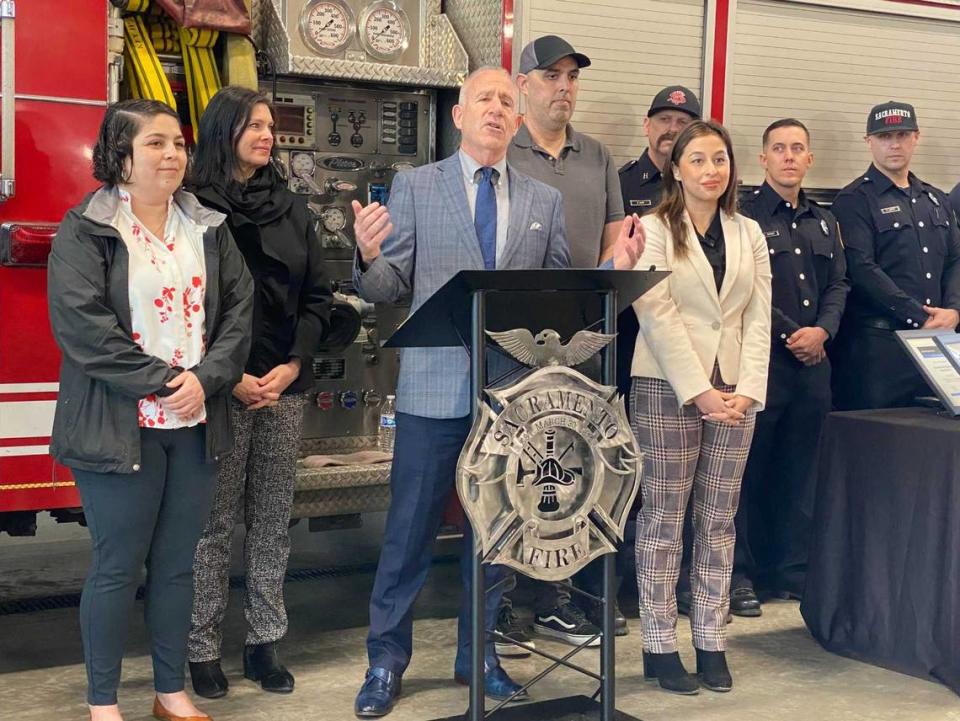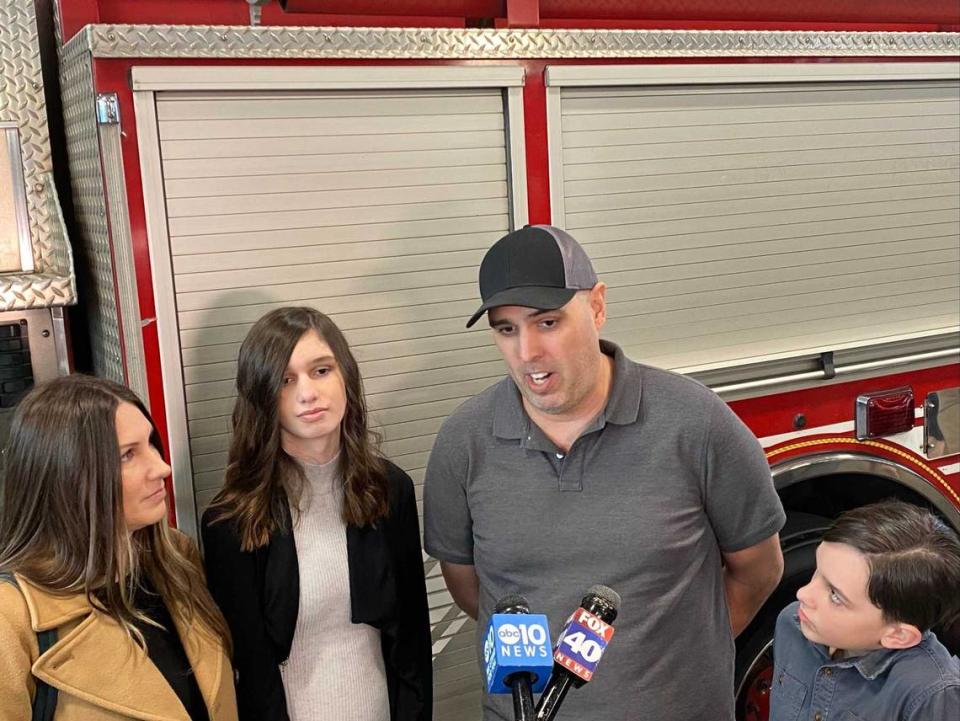‘Zero hesitation’: Sacramento firefighters and city workers saved a man from brain death
- Oops!Something went wrong.Please try again later.
It takes just six seconds.
Survival chances for a person suffering a cardiac arrest decrease by 1% every six seconds, said Dr. Kevin Mackey, the medical director for the Sacramento Fire Department. In just five minutes — the time it may take for firefighters to arrive to a medical emergency call — a person has only a 50% chance of survival if CPR is not administered.
But a series of fortunate events led Sacramento firefighters and other city workers to save Brett Martin’s life after he collapsed due to an irregular heartbeat at the Sacramento River Water Treatment Plant on Dec. 4. First responders and civilians who helped ensure Martin, a city utilities machinist, made a full recovery were honored Wednesday.
“We have much trouble in this world and challenges in our community,” Mayor Darrell Steinberg said in an event at Sacramento Fire Department’s Station 14 on North B Street in the River District. “And, it’s so wonderful to be able to celebrate the best of the community, the best of our city.”

It was a regular work day when Martin fell while speaking to his coworkers. His colleagues’ swift actions — administering CPR immediately and calling 911 dispatchers to coordinate a fast medical response — were heralded by firefighters as vital to ensuring Martin’s full recovery.
“It was a shock,” said Qintno Sarani, 26, who watched Martin fall and jumped to perform CPR.
Martin suffered a persistent ventricular fibrillation, and it took medics injecting him with four shots of a defibrillator, three doses of epinephrine and two doses of amiodarone until he was conscious. Martin was rushed to a hospital, confused but alert, said Fire Department spokesman Capt. Justin Sylvia.
“He walked out of the hospital a few days later, fully neurologically intact, and is here with us today,” Sylvia said.
Martin said he doesn’t remember much from that day. But he and his family expressed how thankful they are for firefighters and his miraculous recovery: He can raise his two children, play with his grandchildren and grow old with his wife.
“It’s everybody involved and their actions and their zero hesitation,” Martin said, “that I get to make memories with my family. I’m just thankful for everybody involved.”

Alongside firefighters, Martin’s colleagues were also presented with challenge coins. It’s a rare feat for a civilian to earn the coveted token revered by those in the fire service, Sylvia said.
Firefighters are called to about 580 cardiac arrests every year. Preliminary numbers show there were about 30 calls last year in which a person like Martin makes a full recovery, categorized as “Cerebral Performance Category of 1,” Mackey said.
“All of that (life) was given back to him because someone cared enough to do CPR,” Mackey said.
Antonio Jimenez, a superintendent at the water treatment plant, said it’s not mandatory for every city worker at the sprawling property to know CPR. But there must be at least one person on-site knowledgeable about performing the life-saving measure, he said.
Jimenez noted there were a series of lucky events that fateful day: Martin fell in front of his colleagues, instead of in an isolated corner of the plant where no one could find him. Sarani began administering CPR, while talking on the phone with dispatchers. Jimenez, who had called 911, stationed employees at every entrance so they could quickly direct firefighters to the right area.
He hopes residents learning of Martin’s recovery learn CPR — that’s why Jimenez said he decided to attend Wednesday’s hubbub surrounding their actions.
Even if one person learns CPR due to Martin’s story, “for me, it was worth it,” Jimenez said.

